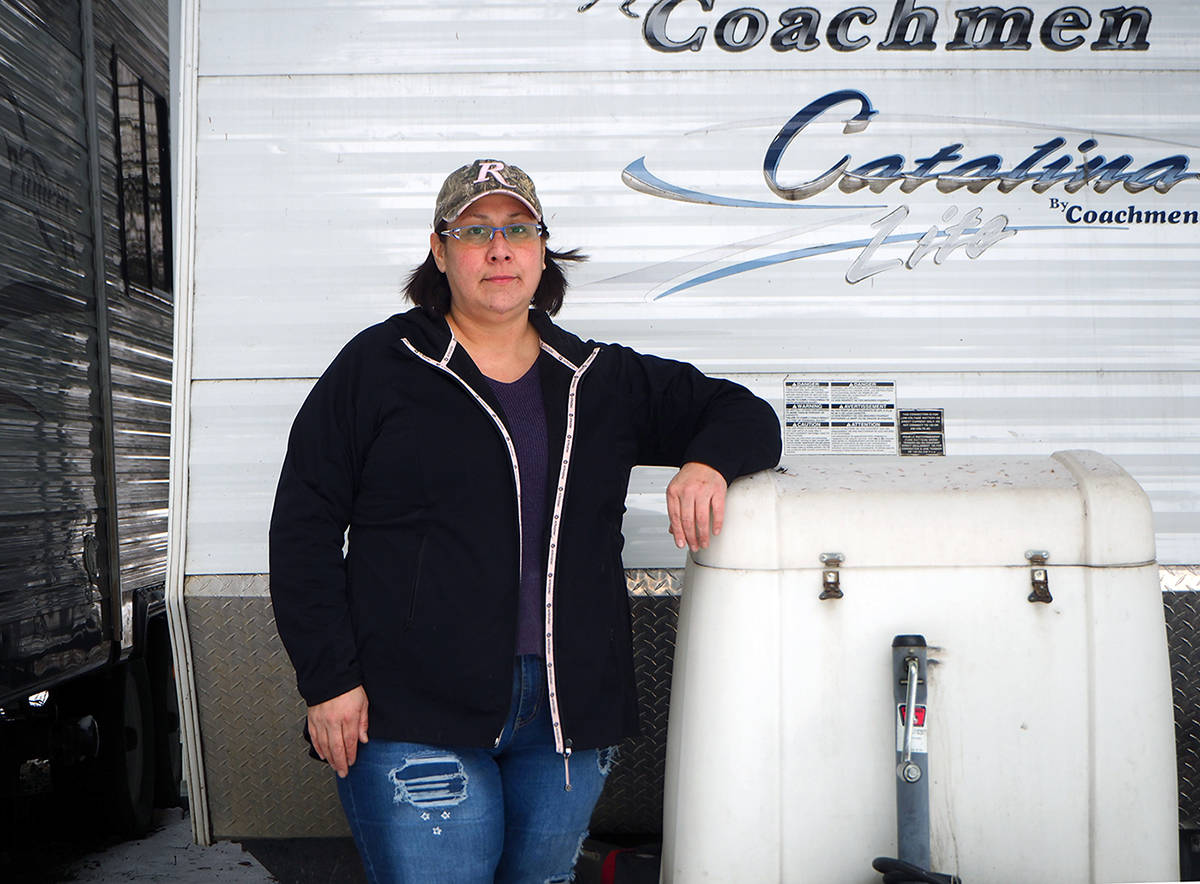For two months, Rhoda DeLuca and her 12-year-old son lived out of a travel trailer in a Kelowna campground while she received radiation therapy to treat stage two breast cancer.
The Hosmer woman had only recently undergone a double mastectomy to remove two malignant tumours from her right breast followed by reconstruction surgery.
However, with no friends or family in Kelowna and a husband who worked away in Fort McMurray, DeLuca was left to fend for herself, driving to and from the hospital, washing their clothes at a laundromat and trying to keep her son Tanner entertained over the summer, while fighting off the side effects of radiation therapy.
Six hundred kilometres away, in Calgary, Alta., was Rhoda’s family who she so desperately needed during that difficult time.
The 48-year-old is now in remission and although it’s been nearly a year since her last appointment in Kelowna, her eyes still fill with tears when she recalls the ordeal.
Rhoda is one of a growing number of people across the Kootenays being denied access to Alberta health services despite their proximity to the B.C.-Alberta border. Hosmer is just a three hour drive away compared to the seven-hour trek to the Okanagan.
READ MORE: Elk Valley patients running into Alberta healthcare roadblocks
“I actually practically begged, I was crying because they wanted me to go to Kelowna and not to Calgary,” she said.
“I said that this is now the fight of my life and I have family that I can actually stay with in Calgary, and my husband can stay with them there… ‘Absolutely no, absolutely not’ is what I was told and I said ‘why, what is this problem?’”
According to Rhoda’s surgeon in Cranbrook, Alberta was no longer taking B.C. patients because facilities were “overrun” with them.
“I had to make use of the resources within British Columbia,” she said.
So began the hardest two years of Rhoda’s life as she travelled to and from Kelowna, eight hours’ away through hazardous mountain passes, which meant long stints away from her home and loved ones.
“I didn’t see my son for 16 days when I had my double mastectomy because he had to stay here in Fernie, we had no one to drive him back and forth,” she said.
“It’s not just going back and forth, it’s the emotion of it all too and what you’re put through without having family around you, and especially being from a First Nations culture where your family is everything.
“I can’t imagine what some of these people have to go through and I’m just glad that I am through it, and I did what I had to do. For the most part, I was pretty positive about it and tried to make a positive situation out of it for my husband and my son.
“It’s a tough thing all round for everybody. I thought we were all just Canadian, I didn’t think there was a border issue until I got cancer.”
To add insult to injury, Rhoda learned a Cranbrook hospital staffer diagnosed with stage one breast cancer was able to receive treatment in Calgary.
She is also being audited by Revenue Services Canada after claiming some of the travel expenses incurred during her illness.
Of the $20,000 the family spent on hotels, gas, eating out and parking, they got $3500 back through income tax.
Fortunately Rhoda kept detailed records and receipts, but still has to get letters of support from her medical team.
“It’s like a double edged sword,” she said bitterly.
“You cry, you whine, you beg you want to go to Calgary, they’re like ‘no, forget it’ so you go to Kelowna and then the Government comes after you to prove that your boobs were cut off and that you had to go there for the treatment.”
More patients are finding themselves in Rhoda’s situation and referred to Kelowna or Vancouver instead of Calgary.
Kootenay East MLA Tom Shypitka’s office has been inundated with constituent concerns and he is urging more people to come forward with their testimonials as he works with the Ministry of Health to resolve the problem.
As of press time Tuesday, the Ministry had not yet responded to The Free Press’ request for comment.
Rhoda fears that if a solution is not found soon, people will start to take desperate measures.
“If I had just gone across into Alberta and said I wasn’t feeling good, can you run some tests and see what’s going on they would have found my breast cancer, I could have gone to Calgary,” she said.
“That’s what’s going to happen; people are going to start trying to figure out the system and then messing with it. I’m a pretty honest person, I wouldn’t do that, but now that I look at it and see what these people are going through and knowing what I went through, it’s almost becoming any man for himself and that’s not fair.”



